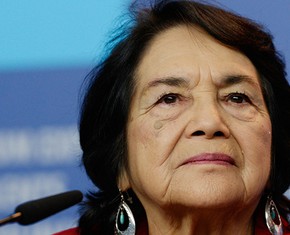The views expressed in our content reflect individual perspectives and do not represent the authoritative views of the Baha'i Faith.
The whole world faces an economic crisis the likes of which we’ve never dealt with before – the great disparity between enormous wealth and grinding poverty keeps getting wider and wider.
In Paris more than a hundred years ago, Abdu’l-Baha, the son of Baha’u’llah, the prophet and founder of the Baha’i Faith, put it this way:
The government of the countries should conform to the Divine Law which gives equal justice to all. This is the only way in which the deplorable superfluity of great wealth and miserable, demoralizing, degrading poverty can be abolished. Not until this is done will the Law of God be obeyed. – Abdu’l-Baha, Paris Talks, p. 154.
Economic crisis, the widening gap between the rich and the poor, grave economic injustice and many more problems that have baffled the experts have forced us to re-examine the entire system and make fundamental changes – before it collapses as it nearly did in 2008. This recent news headline summarizes the economic problems facing humanity: “A CEO from one of the world’s top five global fashion brands has to work for just four days to earn what a garment worker in Bangladesh will earn in an entire lifetime.”
The economic problems started from the beginning when Adam Smith, the father of modern economics, wrote the The Wealth of Nations. That book became like holy scripture for many economists. Smith described economics as the science of creating wealth – but excluded morality and spirituality in his theories. He made self-interest the engine of every economic system.
According to Adam Smith, everybody naturally tries to maximize his or her satisfaction. That selfish philosophy became the breeding ground for greed, which has precipitated the causes of so many economic problems in the world.
But many of Adam Smith’s followers fail to consider that Smith was the first to acknowledge the economic importance of morality in his earlier book The Theory of Moral Sentiments, written in 1759, seven years before he wrote The Wealth of Nations.
In his earlier book, Smith recognized the inherent danger of wealth, even as he provided ideas for generating it:
This disposition to admire, and almost to worship, the rich and powerful, and to despise or, at least, neglect persons of poor and mean conditions, though necessary both to establish and to maintain the distinction of ranks and the order of society, is, at the same time, the great and most universal cause of the corruption of our moral sentiments. – Adam Smith, The Theory of Moral Sentiments, p. 3.
The Baha’i teachings express a similar point of view, saying that one of the primary principles of Baha’u’llah:
… is the readjustment and equalization of the economic standards of mankind. This deals with the question of human livelihood. It is evident that under present systems and conditions of government the poor are subject to the greatest need and distress while others more fortunate live in luxury and plenty far beyond their actual necessities. This inequality of portion and privilege is one of the deep and vital problems of human society. That there is need of an equalization and apportionment by which all may possess the comforts and privileges of life is evident. The remedy must be legislative readjustment of conditions. The rich too must be merciful to the poor, contributing from willing hearts to their needs without being forced or compelled to do so. The composure of the world will be assured by the establishment of this principle in the religious life of mankind. – Abdu’l-Baha, The Promulgation of Universal Peace, p. 107.
This concept of economics, fundamentally different from the Darwinian idea of the survival of the fittest, is based on spiritual and moral principles. Abdu’l-Baha explained it clearly:
The secrets of the whole economic question are Divine in nature, and are concerned with the world of the heart and spirit. – Abdu’l-Baha, The Baha’i World, Volume IV, p. 448.
The Baha’i Faith supports the process of the spiritualization of the economic system by injecting moral and spiritual values. Economics is made for humanity, and has to reflect in it humanity’s true aspirations – practical, ethical, moral, and spiritual.
To assess our progress, we have to combine both the spiritual and material civilizations. These two aspects of human development must go hand in hand, the Baha’i teachings say, and complement each other rather than denying each other:
Material civilization has reached an advanced plane, but now there is need of spiritual civilization. Material civilization alone will not satisfy; it cannot meet the conditions and requirements of the present age; its benefits are limited to the world of matter. There is no limitation to the spirit of man, for spirit in itself is progressive, and if the divine civilization be established, the spirit of man will advance. – Abdu’l-Baha, The Promulgation of Universal Peace, p. 101.
The world desperately needs change in all of its outdated systems, and the Baha’i teachings call for that change to come about through a spiritual reformation first, a reawakening of the souls of humanity.
We may think that we cannot do anything about the emergence of this new, more spiritual system of economics, but that’s not true. By introducing moral and spiritual values in our everyday economic activities, we can each start the process of making changes in ourselves that will affect others. Those changes and economic actions, guided by a deep sense of morality and service to all humanity, will help build the foundation of a just and unified world commonwealth for the future.
A whole host of practical economic suggestions can empower all of us to act, and also help us realize what an incredible opportunity we each have to transform society. These nine recommendations can help spiritualize our economic lives:
1. Focus on the crucial questions of life, such as “who am I?” “what is the purpose of my life?” and “how much is enough?”
2. Commit to living a simple life, a life free of excess consumption and materialism
3. Be honest in all your dealings
4. If you run a business, be content with a reasonable margin of profit
5. Spiritually justify every expenditure by asking yourself “Is this necessary? Is it good for me, my family, and the entire human family?
6. Make your economic decisions with the intent of protecting the Earth’s environment
7. In the spirit of service to others, volunteer whenever possible to help those with fewer economic resources, and give to worthy charitable organizations
8. Adopt reasonable financial goals in life by avoiding debt, habitually saving and making your spiritual well-being independent of your material success
9. Finally, in all your dealings with others, create a consciousness that your welfare, well-being and happiness depend on the well-being, prosperity and happiness of every poor, needy and disadvantaged person in the world.
When you implement these nine economic and spiritual steps in your life, you’ll be following Abdu’l-Baha’s trenchant advice: “Content thyself with but little of this world’s goods! Verily, economy is a great treasure.” – Baha’i World Faith, p. 374.
















Comments
Sign in or create an account
Continue with Googleor